І. Превод
ІІ. Други преводи
1. For Theaios of Argos
The city of Danaos and of his fifty bright-throned daughters, Argos
the home of Hera, meet abode of gods, sing Graces! for by excellencies
innumerable it is made glorious in the deeds of valiant men.
Long is the tale of Perseus, that telleth of the Gorgon Medusa:
many are the cities in Egypt founded by the hands of Epaphos:
neither went Hypermnestra's choice astray when she kept sheathed her
solitary sword.
Also their Diomedes did the grey-eyed goddess make incorruptible and
a god: and at Thebes, the earth blasted by the bolts of Zeus received
within her the prophet, the son of Oikleus, the storm-cloud of war.
Moreover in women of beautiful hair doth the land excel. Thereto in
days of old Zeus testified, when he followed after Alkmene and after
Danaе.
And in the father of Adrastos and in Lynkeus did Argos mingle ripe
wisdom with upright justice: and she reared the warrior Amphitryon.
Now he came to the height of honour in his descendants, for in bronze
armour he slew the Teleboai, and in his likeness the king of the
immortals entered his hall, bearing the seed of fearless Herakles,
whose bride in Olympos is Hebe, who by the side of her mother, the
queen of marriage, walketh of all divinities most fair.
My tongue would fail to tell in full the honours wherein the sacred
Argive land hath part: also the distaste of men is ill to meet. Yet
wake the well-strung lyre, and take thought of wrestlings; a strife
for the bronze shield stirreth the folk to sacrifice of oxen unto Hera
and to the issue of games, wherein the son of Oulias, Theaios, having
overcome twice, hath obtained forgetfulness of the toils he lightly
bore.
Also on a time at Pytho he was first of the Hellenic host, and won
crowns at Isthmos and at Nemea, led thither by fair hap, and gave work
for the Muses' plough by thrice winning at the Gates of the Sea and
thrice on the famous plains in the pastures of Adrastos' home. Of
that he longeth for, O Father Zeus, his mouth is silent, with thee are
the issues of deeds: but with a spirit strong to labour and of a good
courage he prayeth thy grace. Both Theaios, and whosoever struggleth
in the perfect consummation of all games, know this, even the
supremacy of the ordinance of Herakles that is holden at Pisa: yet
sweet preluding strains are those that twice have welcomed his triumph
at the festival of the Athenians: and in earthenware baked in the
fire, within the closure of figured urns, there came among the goodly
folk of Hera the prize of the olive fruit.
On the renowned race of thy mother's sires there waiteth glory of
games by favour of the Graces and the sons of Tyndareus together. Were
I kinsman of Thrasyklos and Antias I would claim at Argos not to hide
mine eyes. For with how many victories hath this horse-breeding city
of Proitos flourished! even in the Corinthian corner and from the
men of Kleonai four times, and from Sikyon they came laden with
silver, even goblets for wine, and out of Pellene clad in soft woof of
wool. But to tell over the multitude of their prizes of bronze is
a thing impossible--to count them longer leisure were needed--which
Kleitor and Tegea and the Achaians' high-set cities and the Lykaion
set for a prize by the race-course of Zeus for the conquerors by
strength of hands or feet.
And since Kastor and his brother Polydeukes came to be the guests
of Pamphaes, no marvel is it that to be good athletes should be
inborn in the race. For they it is who being guardians of the wide
plains of Sparta with Hermes and Herakles mete out fair hap in games,
and to righteous men they have great regard. Faithful is the race of
gods.
Now, changing climes alternately, they dwell one day with their dear
father Zeus, and the next in the secret places under the earth, within
the valleys of Therapnai, fulfilling equal fate: because on this wise
chose Polydeukes to live his life rather than to be altogether god and
abide continually in heaven, when that Kastor had fallen in the fight.
Him did Idas, wroth for his oxen, smite with a bronze spearhead, when
from his watch upon Taяgetos Lynkeus had seen them sitting within a
hollow oak; for he of all men walking the earth had keenest eyes. So
with swift feet they were straightway come to the place, and compassed
speedily a dreadful deed.
But terrible also was the vengeance which by the devising of Zeus
those sons of Aphareus suffered: for on the instant came Leto's
son in chase of them: and they stood up against him hard by the
sepulchre of their father. Thence wrenched they a carved headstone
that was set to glorify the dead, and they hurled it at the breast of
Polydeukes. But they crushed him not, neither made him give back,
but rushing onward with fierce spear he drave the bronze head into
Lynkeus' side. And against Idas Zeus hurled a thunderbolt of consuming
fire.
So were those brothers in one flame burnt unbefriended: for a
strife with the stronger is grievous for men to mix in.
Then quickly came back the son of Tyndareus to his great brother,
and found him not quite dead, but the death-gasp rattled in his
throat. Then Polydeukes wept hot tears, and groaned, and lifted up his
voice, and cried: 'Father Kronion--ah! what shall make an end of woes?
Bid me, me also, O king, to die with him. The glory is departed from
a man bereaved of friends. Few are they who in a time of trouble are
faithful in companionship of toil.'
Thus said he, and Zeus came, and stood before his face, and spake
these words: 'Thou art my son: but thy brother afterward was by mortal
seed begotten in thy mother of the hero that was her husband. But
nevertheless, behold I give thee choice of these two lots: if,
shunning death and hateful old age, thou desirest for thyself to dwell
in Olympus with Athene and with Ares of the shadowing spear, this lot
is thine to take: but if in thy brother's cause thou art so hot, and
art resolved in all to have equal share with him, then half thy time
thou shalt be alive beneath the earth, and half in the golden house of
heaven.'
Thus spake his father, and Polydeukes doubted not which counsel he
should choose. So Zeus unsealed the eye, and presently the tongue
also, of Kastor of the brazen mail.
2. Феэю Аргосскому
Город Даная и пятидесяти его дочерей на блистательных тронах,
Аргос,
Благолепную обитель Геры,
Воспойте, Хариты!
В нем сияют десять тысяч слав
Деяниям его отваги.
Персею
Долгая слава за Медузу Горгону.
Ладонями Эпафа 5
Много воздвигнуто городов в Египте.
Гипермнестру,
Единственный меч удержавшую в ножнах, не минует хвала.
1а Диомед
Бессмертие принял от богини сероокой и русоволосой,
А под Фивами
Приняла земля пред Зевсовым перуном
Вещего Оиклида, грозовую тучу войны.
Славен Аргос и прекраснокудрыми женами —
Славу эту в древности явил Зевес, 10
Нисходя к Алкмене и к Данае.
Зрелый плод ума и прямой путь правды
Сочетались здесь в Линкее и в Адрастовом отце,
1э Вскормлено здесь и копье Амфитриона —
Тот, кто сильней всех счастьем,
Вошел в его родню,
Когда медным оружием сокрушил он телебоев, 15
А царь богов,
Уподобясь ему обличьем своим,
Внес в чертог его
Семя неукротимого Геракла —
Геракла, супруга Гебы,
Прекраснейшей из богинь,
Ступающей по Олимпу близ матери своей, блюстительницы супружеств.
2с Коротко дыхание уст моих,
Не исчислить ему всех благ, что на доле священной ограды Аргоса, 20
И тяжко ему противостоять всей зависти людской.
Но ты, Муза,
Пробуди добрые струны моей лиры,
Заботой своей коснись состязаний,
Где медный спор
Сгоняет народ к бычьим жертвам Геры,
И к той борьбе,
Где Феэй, сын Гилия,
Двойною победой достиг забвенья благопонесенных трудов.
2а Некогда при Пифоне 25
Осилил он все эллинское воинство;
При Истме и Немее,
Счастливый приходом, домогся он венка,
Утруждая Муз
Трижды у морских ворот
И трижды средь священных равнин, по Адрастову чину.
Отец наш Зевс!
Сердце его жаждет, хотя уста его молчат.
И свершение трудов его — в тебе.
Не минует милость твоя 30
Мольбы того, кто в неробком сердце несет отвагу.
2э И я пою то, что ведомо лишь богам,
И я пою того, кто в высокой борьбе соревнуется о пределе!
А высший устав —
Это тот, что ставлен Гераклом в Писе:
Предвестием были
Сладкие голоса афинских торжеств,
Дважды тебя приветившие, —
Недаром земля, обожженная огнем, 35
В расписных тайниках сосудов
Несла оливковый дар116
Славному храбрецами народу Геры.
3с Не впервые
Милостию Харит и Тиндаридов
Честь, завоеванная в борьбе,
Следует знатному племени
Предков твоей матери, о Феэй!
Будь я сородичем Фрасиклу и Антию,
Не пришлось бы мне скрывать свет очей моих перед Аргосом! 40
Город Прета, кормилец коней,
Сколько раз
Цвел ты победами
И в низинах Коринфа, и четырежды у Клеонских мужей!
3а Из Сикиона к тебе притекли
Одаренные винными серебряными чашами,
Из Пеллены —
Облаченные нежащими шафранами,
А медь твою многую не впору перечесть, 45
Не вмочь оценить, —
Медь от Клитора, и Тегеи, и ахейских нагорных городов,
Медь от Ликея,
Снесенную к Зевсу данью побед
Бегу ног, силе рук.
3э Кастор с Полидевком, кровным своим,
Гостями были Памфая, — 50
Так диво ли,
Что пророс его род лучшими из состязателей?
С Гермесом и Гераклом
Братья-блюстители Спарты, широкой в плясках,
Правят цветущие жребьи схваток
И пекутся о честных мужах, —
Необманно племя богов.
4с Переменною чередою 55
День они пребывают при Зевсе, милом отце,
И день — в полых недрах Ферапны.
Един их жребий,
Ибо это Полидевку милей,
Чем всецело быть ему богом и жить в небесах,
А Кастору мертвым лежать в бою.
Это Идас, гневаясь за быков, 60
Пронзил его острием жадного копья,
4а И это Линкей
Увидел его с Тайгета скрытым в дубовом дупле,
Ибо взором был острее всех земножителей.
Быстрой стопой
Помчались сыны Афарея,
Смелое дело
Замыслили они в уме своем,
Но страшная казнь настигла их от Зевса. 65
За ними по стопам ринулся сын Леды,
У отчей гробницы вышли они на него лицом к лицу,
4э С отчей гробницы схватив точеный камень, убранство Аида,
Чтобы им уметить
В грудь Полидевка.
Но он не рухнул, он не отступил:
В бок Линкею вогнал он медь летящего копья, 70
А Идаса дымным огненосным громом поразил Зевс,
И оба сгорели, покинутые, —
Смертным не под силу тягаться с сильнейшими.
5с Быстро воротился Тиндарид
К мощи своего брата;
Был еще брат живым,
Но хрипло вылетало его дыхание.
Проливая горячие слезы, 75
Со стоном
Выговорил Тиндарид, возвысив свой голос:
«Отец Кронион,
Есть ли мне какое избавление от страданий?
Ниспошли, о владыка, смерть
За ним и мне!
Кто теряет друзей, тот теряет честь, —
Ибо редкий из людей, пособников в наших трудах,
5а Верен в беде».
Так молвил он;
И Зевс,
Представ перед ним,
Обратил к нему ответное слово:
«Ты — мой сын, 80
Но после меня приблизился к матери твоей
Герой ее и муж,
Излив в нее смертное семя.
Я вручаю твой выбор тебе:
Если хочешь ты, чуждый смерти и мерзкой старости,
Обитать на Олимпе
С Афиною и с Аресом, о черном копье, —
5э Жребий в твоих руках. 85
Если же бьешься ты за кровного твоего,
Если хочешь ты поровну с ним разделить удел, —
Половина дыхания твоего будет в глубях земли,
Половина — в золотых чертогах небес».
Так сказал Зевс, —
И не было двух мыслей в уме у Полидевка.
А бог
Разомкнул очи и уста
Бойцу, с головой, одетой в медь, —
Кастору.
ІІІ. Коментари
Le nom grec Nemea semble avoir tiré son origine de ce que les boeufs consacrés à Junon paissaient autrefois dans ce lieu de l'Argolide. Les chefs de l'armée d'Adraste roi d'Argos y avaient célébré, avant de partir pour Thèbes, une pompe funèbre en l'honneur d'Archémore, jeune fils d'Hypsipyle, tué par un serpent pendant que sa mère allait montrer à ce roi une fontaine pour le désaltérer lui et sa troupe. Hercule ayant depuis cette époque tué un lion dans la forêt voisine dudit pâturage, substitua aux jeux funèbres qu'on y célébrait, ceux commémoratifs de sa victoire, sur le lion de Némée. Il en fixa le retour à chaque troisième année. Une couronne et des guirlandes d'ache vert étaient distribuées aux vainqueurs, pour prix de leurs succès.
About the Latin Academy in the Vatican
13 years ago
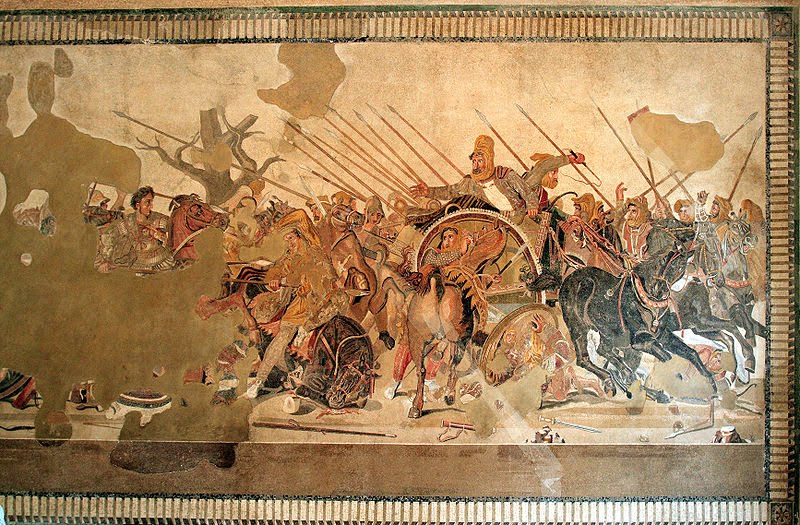
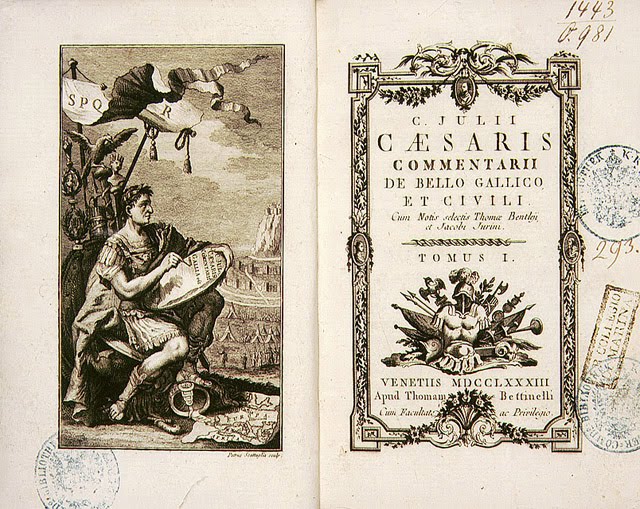
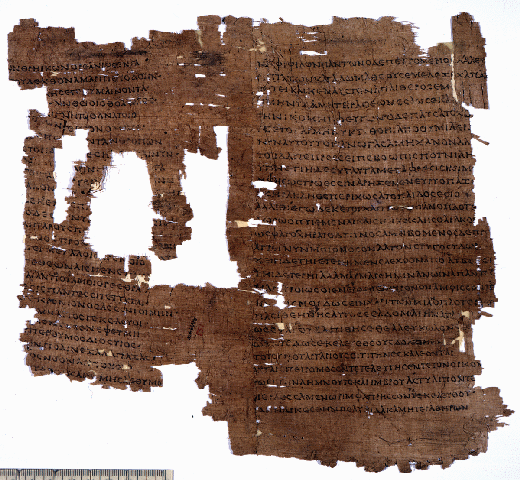
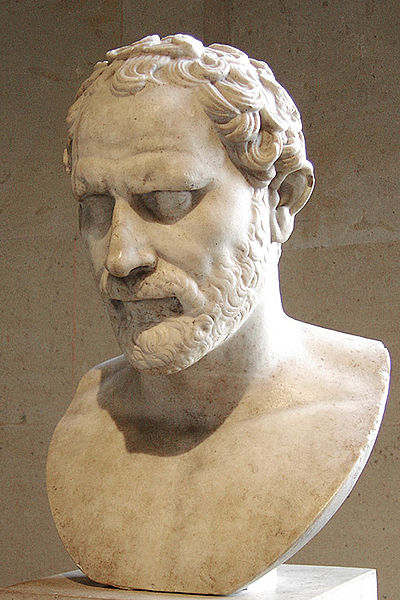


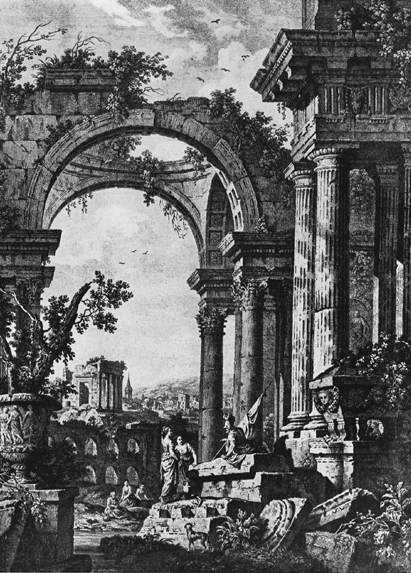




No comments:
Post a Comment